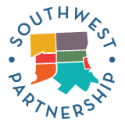Crossing the Digital Divide
Chrissie Powell: Byte Back is a tech inclusion nonprofit–bring in adult learners at the very basic level of tech knowledge. Can advance into other pathways.
Kelly Hodge Williams: working with PCs for People to bring their programming to Baltimore. Will open in July, address both hardware and training needs.
Digital Equity Coalition came into being recently with the covid-19 crisis in order to address major issues with digital equity in the city. Have been focusing on k-12 Baltimore City Schools students as well as other groups.
90,000 Baltimore City households do not have internet in their home, additional 75,000 households do not have any devices in their home.
Four work groups in the coalition:
- Internet Connectivity, which focuses on internet connectivity through mesh networks. Starting with four neighborhoods. Have funding from Baltimore Collaborative Fund. Mesh networks are based on institutions that have strong wifi signals–can amplify the institutional wifi signal. Which neighborhoods?
- Digital Access/Device Access, working with PCs for People to provide low cost/free devices to families with students and some adult students. Have a stipend fund for organizations to apply to get a stipend to purchase devices for clients
- Digital Skills Team: focusing on an help desk support helpline for adults working in adult education and workforce training programs. Working with a number of workforce and adult learning organizations in the city. Goal is to launch helpline by the end of the month so learners can call in and speak to a certified help desk technician.
- Advocacy and Development Team: focus is advocacy
A rapid response effort, but also looking at a more long term strategy and the role of government in making sure that digital equity gap is closed.
Lisa: any best practices for supporting learners who are resistant to learning digital skills? This is a big issue, lots of folks have never used technology before, have limited time at the library and often have not been invested in. Helping people gain that confidence is not a one time class–it require starting with the very basics and having a consistent learning presence.
Many of the organizations on the call are having issues with connectivity.
To participate in the work of the coalition:
Please follow the below steps to ensure you have access to all of the Coalition groups, meetings, emails and participating members. “Workgroups” is the space where the real work gets done, including projects like setting up community mesh networks, accessing low-cost refurbished devices and developing a tech support hotline for adult learners. You will be able to join a workgroup(s) via the below form link as well.
Fill out this form: https://forms.gle/kfTYxHdL7vQ3vHZB8
Accept Invitations to Slack and the Listserv
(If you are becoming a member) Add your logo to this folder: https://drive.google.com/open?id=17h8dWdvvths6oKyOpkrh4WP_dG2AkkXD
To purchase computers for clients: khodgew@pcsforpeople.com
Also federal program called lifeline-provide subsidy towards cell phone bill or internet access.
Abigail asked about ongoing efforts to provide universal broadband–what’s missing is internet providers who are willing to lay the “last mile” of physical infrastructure. There have been ongoing efforts but there is still a long way to go.
Lisa: would like to see more investment in people to support the people needed to support people in learning the skills they need to learn. Kelly–there may be a new job opportunity in training people to be supportive to new technology users
Improving Racial Equity Lens
Have had a number of conversations about work quality, racial equity, and the workforce committee is working on advocating for a number of worker rights/job quality issues. Asked Allie to report on the work she is doing and avoiding replicating white supremcist framing in the work that they are doing. ABC (Associated Black Charities) has two 10 Essential Question tools for employers and workforce development programs to address racial equity and white supremacy in their policies and practices.
Civic Works has been taking a job quality and racial equity lens to begin talking with employers about how workplace practices can strengthen their workplace. Good Business Works Network recognizes employers that are currently doing this work.
Committee discussed where their organizations are in this type of work.
SWP Education and Workforce Development Committees may be interested in learning more about this work and advocating for it to the SWP.
Education Committee calling community groups to see what their folks need
Lisa: UMMC is still hiring, especially in food service
Announcements
Lifebridge: encourage people to apply to Grace Medical Center, won’t be able to start until after fiscal year
Back on My Feet: trying to make the pivot to virtual programming

